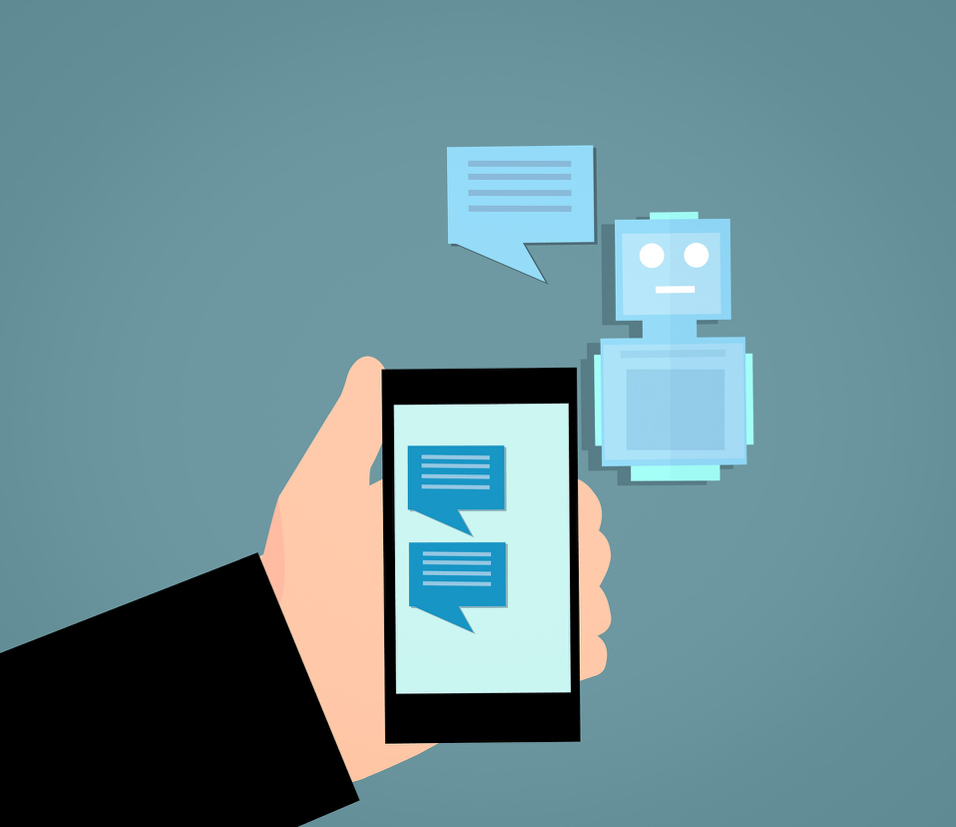It was a long time ago that the mathematician Alan Turing came up with his famous Turing test and asked whether bots could ever imitate humans. Nowadays, businesses are using chatbots to do the customer service jobs that used to be completed by agents and call centres. As powerful a tool as chatbots are, however, chatbots cannot solve all customer service problems businesses face, and occasionally the hype has overstated what call centre chatbots can do.
In this article, we explain what is a chatbot, why they are so useful, the problems that can arise when using them, and precisely why they are so crucial to customer service.
What is a Chatbot?

Simply put, a chatbot is a computer program that simulates human conversation through computer intelligence. By programming a computer to respond to natural language with human-like responses, chatbots can answer simple questions asked in different ways by different people.
Chatbots are designed to make a consumer feel like they’re talking to a responsive and helpful piece of software that can answer and provide support to the consumer. Not all chatbots try to pass the Turing test and be indistinguishable from humans. Indeed, the point of the Turing test was that you can ask a robot any question and get a meaningful answer; by contrast, many chatbots use structured responses and suggest pre-written questions to make the customer service experience smoother.
Rather, chatbots are a way for humans to interact directly with software through natural language. Usually using decision-tree logic, chatbots ‘read’ natural English questions and scour it for key words to choose a response to a customer’s needs. In doing so, chatbots can offer instantaneous response to customer’s questions without needing to take up time of a member of staff.
Why are Chatbots Essential for Customer Service?

Chatbots will not be merely an option for companies, but a requirement. By 2020, according to Gartner Predicts, the average person will have more conversations with bots than their spouses. Anywhere between 25 and 85% of all customer service interactions will involve bots. In short: chatbots are here to stay, and soon they will become a central part of how customers engage with call centres and brands.
Good customer service causes high customer satisfaction, which in turn creates repeat business. In other words, good customer service has always been a crucial determinant of success for a company.
How do consumers want companies to engage with them, then? eDigital’s customer service benchmark survey looked into this precise issue. 48% of respondents said via social media, 61% by email, and 73% by chat. By contrast, only 44% said they wanted communication through phones. Customer service that entirely focuses on agents in call centres are becoming less and less popular among customers, while chatbots are becoming integral as the first form of communication between users and companies.
What are the Advantages of Chatbots in Customer Service?

Chatbots are effective tools for boosting and improving your customer service offering. Customer service chatbots, in particular, have a number of advantages over talking to a person over the phone or online:
They are available all the time, 24/7. Whenever the customer needs help or information, a customer service proposition that has integrated chatbots will be able to meet a consumer’s needs at least partially. Furthermore, when your call centre is extremely busy, callers have to wait longer and longer to get through to a free agent; by contrast, a chatbot is always available to talk.
Chatbots do not have human emotion, they can be programmed to always be cheerful. They don’t get angry, scared or tired, and regardless of what the customer says, the chatbot will consistently provide information. With Hostcomm you can even get a chatbot smart enough that your customers can ask small-talk questions and receive natural-language answers to give your users an opportunity for fun and create a connection if they wish!
Chatbots scale quickly. Unlike employees, you do not need to undergo a long hiring process, onboarding, training, and finding room in your office or call centre to house another worker. They also do not require HR, breaks, tea or coffee to function.
What are the Disadvantages of Chatbots in Customer Service?

As wonderful as chatbots are, it has to be said – the robots are not taking over customer service! Agents remain invaluable. In fact, most people would agree that when it comes to customer service, letting agents talk directly to customers is invaluable. To understand instantly what a customer’s problem is, what their needs are, and what help they need, you simply do not have a better alternative than a human being.
Chatbots are supplementary to, not a replacement for, a customer service offering. They can provide amazing support for staff by quickly collecting information about a user’s problem and provide solutions to frequently asked questions at the customer’s leisure. Consultants at IBM found that well-programmed chatbots can answer 80% of questions and reduce customer service costs by up to 30%.
The power of this technology combined with human beings can provide a great platform for customer support. Chatbots working with customer service agents can reduce call time, speed up response times, and free up agent time.
By contrast, a poorly programmed chatbot can risk annoying consumers who want to talk to an agent straight away. Expecting chatbots to take over too much work from agents can also lead you to miss key targets – a consumer with a particularly difficult question might not be easily answerable by a machine or might need the help of a real person.
Additionally, the final 20% of questions that chatbots cannot answer are usually the most important questions that require the help of a real person. When it comes to supporting customers with extra requirements, customers who have had a problem with a product and need additional aftercare and empathy from a human being. If human error has arose at some point in your service, staff members are much more able to put things right than automated bots. Even if chatbots are taking over answering the easy questions, the harder questions or ones that require human emotion to secure customers and brand loyalty require well-trained agents to support your offering.
Our chatbot is specifically designed with all of this in mind – it can raise a virtual hand for help using our intelligent handover system to contact a live agent to step in and help your customer. If you are interested in implementing a quality call centre chatbot, get in touch, and we are happy provide assistance.
In short, chatbots are the future of customer service because consumers love interacting with them and call centres save massive amounts of money by using them. A quality call centre chatbot working alongside agents will add substantial value to your business. They will not replace humans any time soon, but every major call centre dealing with customer service will quickly need to have one.
If you are interested in implementing chatbots in your business, get in touch and we are happy to provide our expertise to provide you with a customised solution for your company, starting at £49 a month and £500 setup.














